Egypt is a country that attracts many tourists. Many people seek all-inclusive resorts, but some prefer to stay away from such places. Many of them enjoy traveling alone. Since Egypt is predominantly Islamic, some questions may arise, especially when you are a woman traveling alone. One of the is: is it safe to travel to Egypt as a woman?
I decided to structure this article as a brief interview between myself, and ChatGPT to give you a clearer picture of who I am. And how that might lead to different scenarios and experiences compared to yours. In the end, I added some paragraphs to summarize some safety concerns that are also very important.
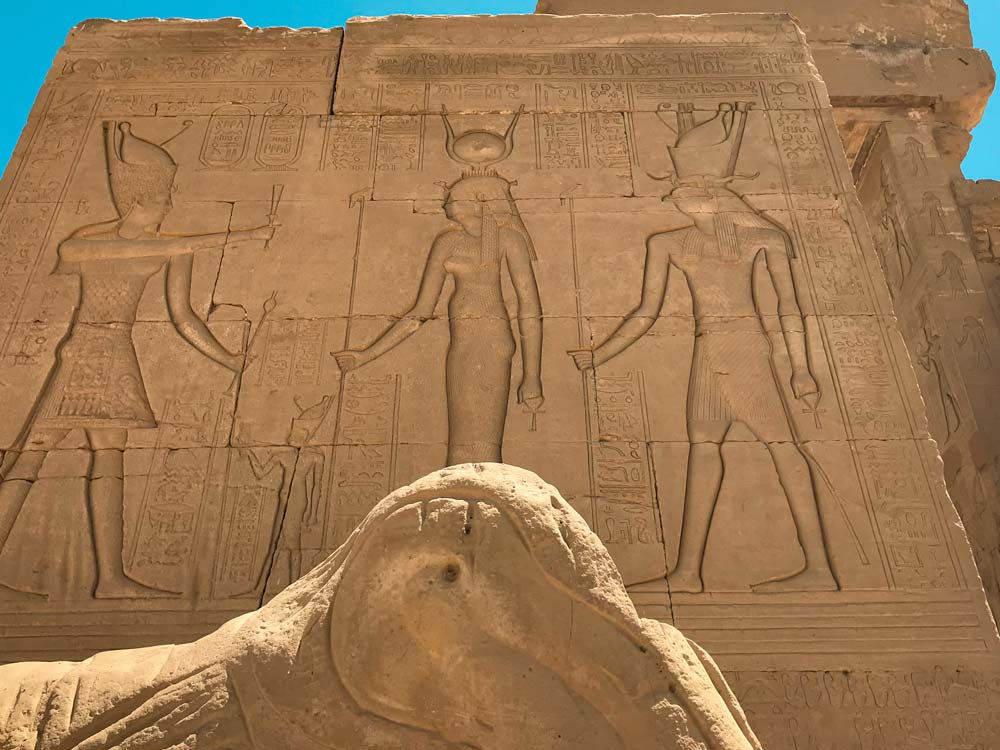
Can you introduce yourself and tell us a bit about your travel background?
I am more of a city dweller and aesthetic seeker who enjoys exploring new places. Either for art, architecture, political, or spiritual reasons. Most of my travel experience comes from traveling within EU countries. 2 of the countries outside the EU that I have visited are now at war. The majority of my trips have been solo adventures.
What inspired you to travel to Egypt as a solo female traveler?
The main goal of my trip to Egypt was to reconnect with my intuition and psychic realms. My journey also stemmed from my interest in Aleister Crowley, the English occultist who drew inspiration from ancient Egyptian deities for his works. He visited Egypt in 1904 and had mystical experiences with a being named Aiwass. It made him write the infamous The Book of the Law. He also visited the Egyptian Museum in Cairo with his wife, Rose. She was captivated by the Stele of Ankh-ef-en-Khonsu, where she recognized an image of the god Horus. The Stele was listed as number 666.
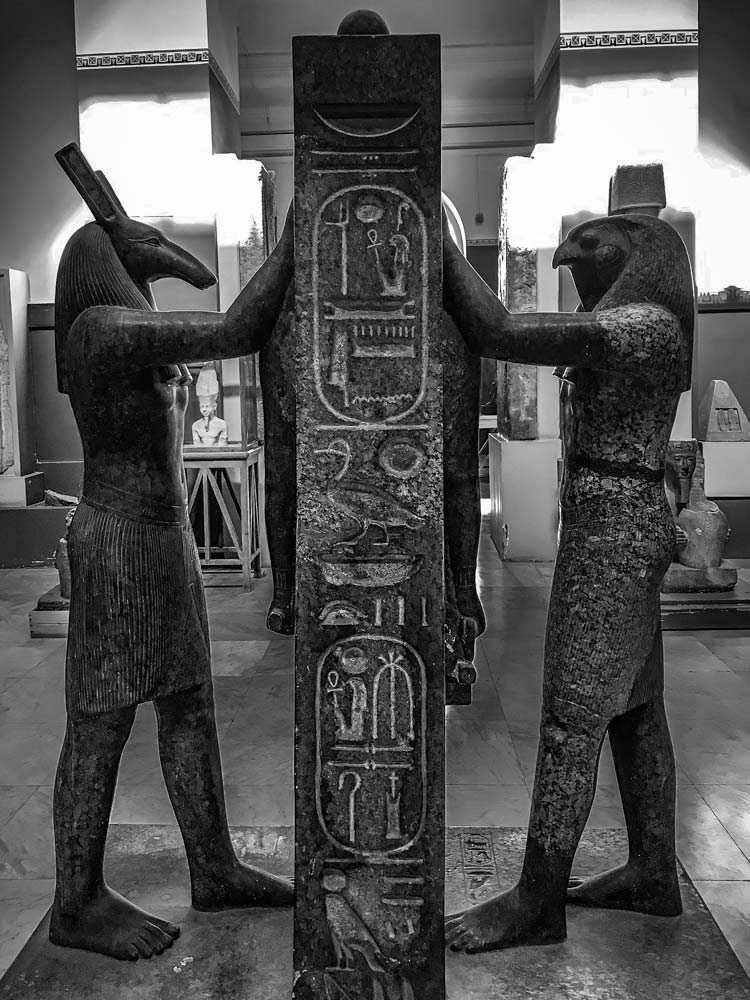
What were your initial expectations and perceptions of Egypt before your trip?
I had heard about past terrorist attacks in the country, but I wasn’t very concerned about them. What bothered me more was the presence of many tourists or masses. It made me wonder what kind of effect this aspect would have on me. How much attention do foreigners attract, and what kind is it?
How did you prepare for your trip to Egypt?
My preparation was very similar when traveling to other countries. I planned and organized everything in advance. Well, not everything. There were two days when I had to improvise. One day in Cairo, without any booked tours, I took a taxi to the Saqqara pyramids. In Hurghada, after missing my booked tour, I chose to explore urban exploration (Urbex) sites around town instead.
Did you research specific safety tips for women traveling alone in Egypt? If so, what resources were most helpful?
Yes, I did. I have studied what kind of clothes I should wear. Hurghada, because of the resorts, has a more laid-back atmosphere. It is way more ok to walk around in shorter skirts. But in Cairo, it is far better to move around dressed modestly. However, as a foreigner, you will attract attention everywhere no matter what clothes you are wearing (probably traditional religious Islamic ones). Most of my time spent in Egypt was with tour guides. On the other hand, there were 2 times when I was walking alone by myself after sunset, or even after 10 am (you can find more information about it in connection to my El Dahar, and Hurgahada Museum in this article 13 Fun Things to do in Hurghada).
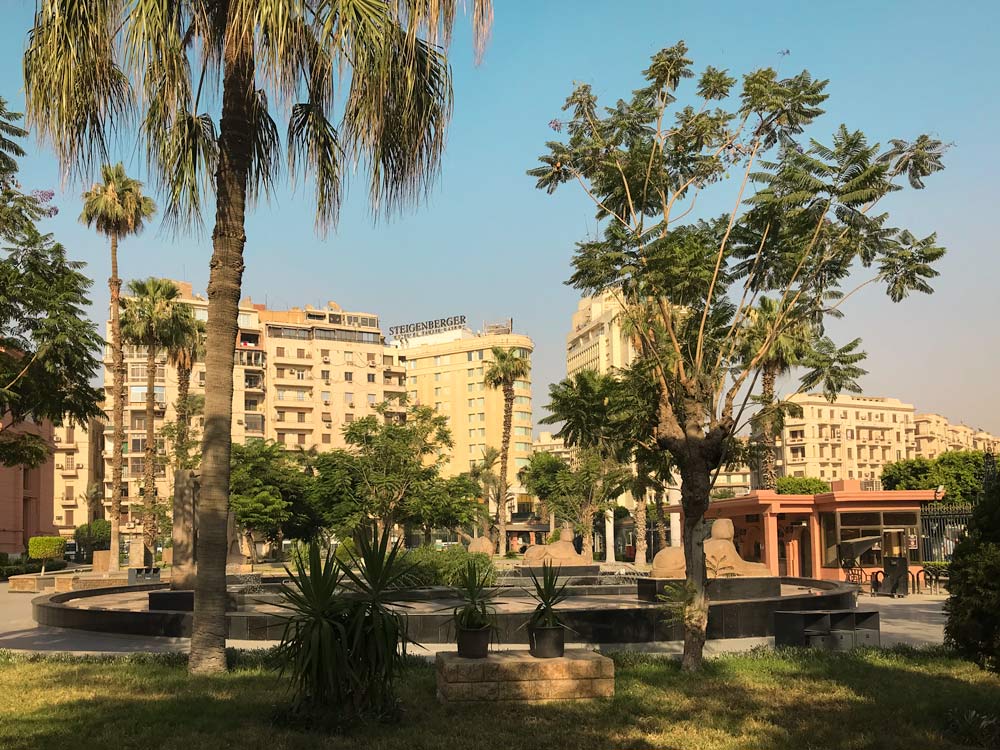
Can you describe your overall experience in Egypt?
My overall experience in the country was positive. The biggest issue, mostly in Cairo, was people approaching me to get me into their bazaar shops. Since I don’t speak Arabic, I had some challenging moments while moving from place to place and using public transport.
But there was always at least one person who could speak English to answer my questions—such as whether I was on the right bus. On one occasion, between Cairo and Hurghada, the bus stopped because of a broken air conditioner, and I was unsure what was happening or how the problem would be resolved.
Were there any moments when you felt unsafe? If so, how did you handle those situations?
Perhaps for a moment as I walked down El-Nasr Street in El Dahar, Hurghada. It was after sunset. The street was long, and I was cautious the entire time. I felt quite safe walking alone from the Hurghada Museum to Sheraton Beach. Although it was midnight, many people, including tourists, were there, and some souvenir shops were still open.
How did locals react to you as a solo female traveler?
The worst part was being constantly approached by people in downtown Cairo around El-Tahrir Square. One out of five people was interested in getting me into their bazaar shop. Hurghada was much better without all these hustlers. Many times, people on the streets, in museums, or at ancient sites wanted to take pictures with me.
Are there specific places or neighborhoods you would recommend as particularly safe or enjoyable?
I recommend booking a tour guide, especially when you are in Cairo or want to visit less touristy places. You will be with someone who speaks English, and they can help reduce your chances of being an easy target for local hustlers.
My favorite and likely the safest spot, free from street vendors, was El Gouna near Hurghada. Known for its distinctive architecture and thoughtful design, this modern town reflects Nubian influences and has a touch of Dutch charm with its lagoons resembling canals. While strolling through its neighborhoods, surroundings, and beaches, the only thing missing was the weed—though it’s still possible to find it in Egypt.
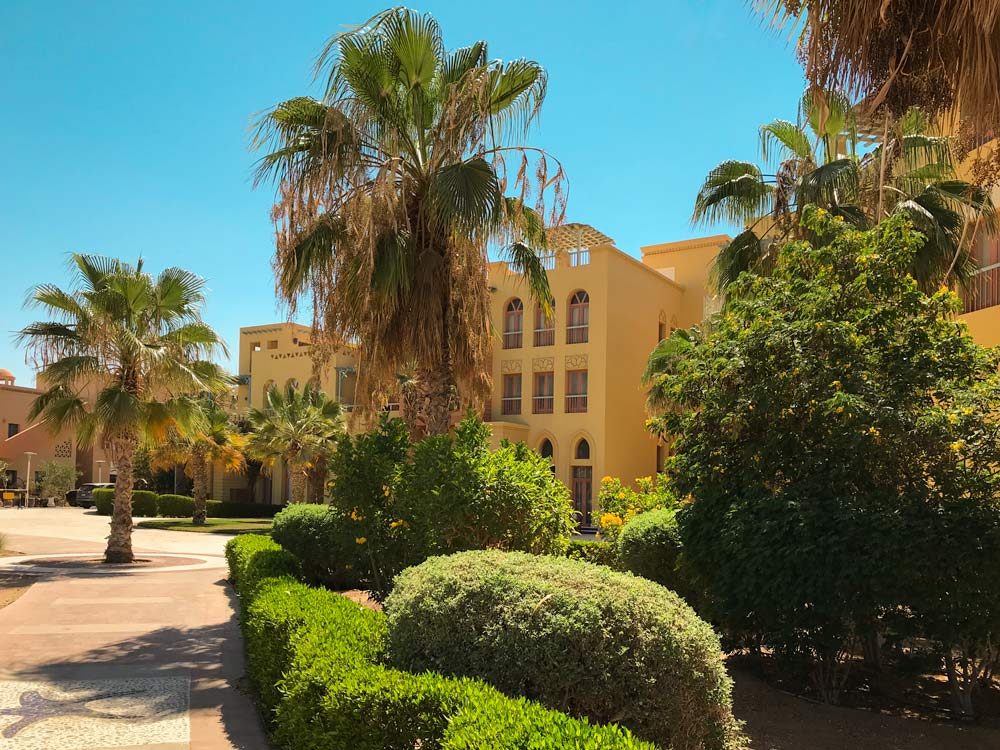
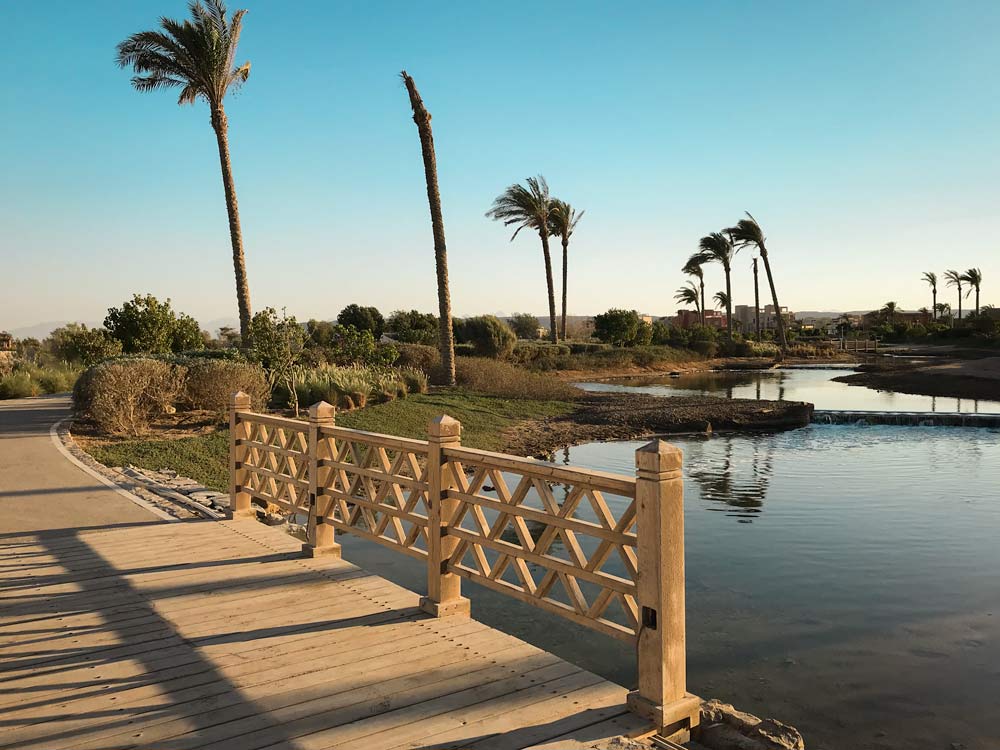
How did you manage transportation, and do you have any advice for getting around safely?
Most of the time, I was on a booked tour and spent a significant amount of time in cars. Then I took the bus from Cairo to Hurghada. The air conditioner broke, and all passengers were asked to move to a new bus. I also took a short bus ride from Hurghada to Senzo Mall. I had no idea how to stop the bus in the center, and someone decided to do it for me. Besides that, I used Uber in Hurghada and a taxi in Cairo. The overall experience was good, except for one taxi driver when I needed to move from the bus station to my hotel after I arrived in Hurghada. He asked for a higher price compared to Uber.
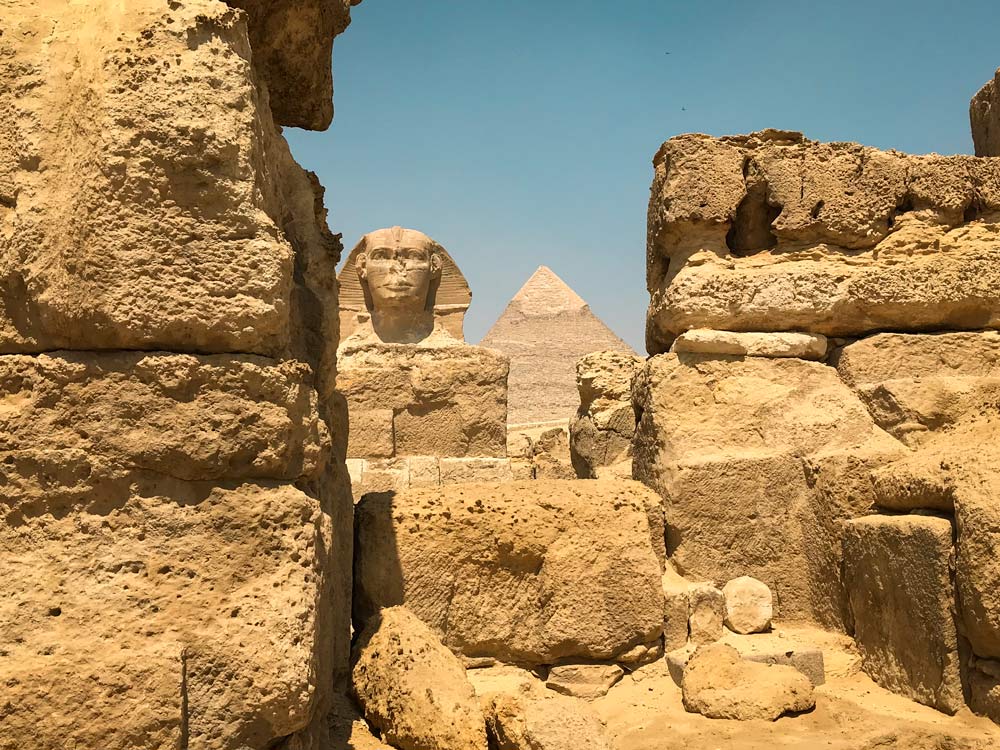
How did traveling solo in Egypt compare to your experiences in other countries?
A notable disadvantage was not speaking Arabic. I couldn’t use public transport as easily as I do in Europe, or even in countries like Russia and Israel. I didn’t experience any catcalling on the streets, despite expecting it based on some videos, mostly from Cairo. However, I did spend a lot of time inside cars on guided tours. Compared to Israel, where such behavior was more present I felt much more unsafe. For example, in the old town of Jerusalem, I got stuck in the Muslim Quarter when many people were leaving prayer, mostly men, and there were police officers everywhere. I also heard strange sounds while on a booked tour in the Israeli desert. Or, walking down the Jerusalem streets after sunset on Friday, seeing a gun (probably an M1 Carbine, M16, or M4 ) in front of me out of nowhere at a corner. When discussing spiritual or religious thoughts and traditions, people in Egypt were open to different theories and non-Islamic approaches. I even talked about chaos magick with some of them. In contrast, staying in Jerusalem as a pagan felt like being an alien in a predominantly Jewish and Christian environment.
Is the tap water safe to drink in Egypt?
It is not advised to drink it, although some locals drink it.
Do you recommend eating street food in Egypt?
Yes, I do, but be aware that some places will have menus only in Arabic. In Cairo, I found many street vendors offering fresh bread. However, there were also many street cats hanging around, which appeared dirtier than those I usually see in Slovakia. They could touch some of the fresh goods.
What is the situation like for LGBTQ+ travelers in Egypt?
The situation is not great for queer people in Egypt. Homosexuality is not explicitly illegal but LGBTQ+ people can face arrest under laws related to public morality, debauchery, or prostitution.
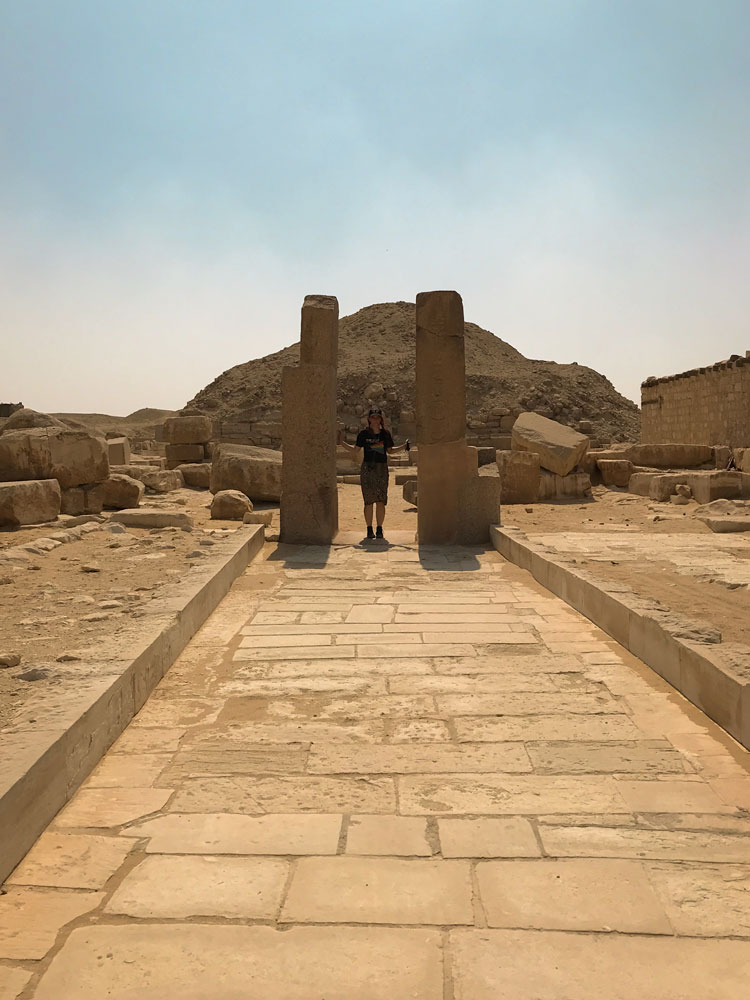
General Rules to follow
Dress modestly – women should wear clothes that cover their shoulders and knees. Not very tight, or revealing. When visiting religious sites, all people should cover their shoulders. It is always a good idea to have a scarf with you. You can use it to cover your shoulders or create a skirt.
Respect local customs – if you are visiting more conservative areas, try to dress even more conservatively and opt for loose-fitting clothing.
Public displays of affection – avoid kissing or hugging in public. Also, evade hand gestures that might be interpreted as rude or offensive.
Photography rules – always ask for permission when taking pictures of people. Avoid taking images of governmental buildings, and police stations. Taking photos at El Tahrir Square might be a sensitive issue too (I was approached by a man asking me if I knew where I was, suggesting to stop such activity).
Tipping is a significant aspect of Egyptian culture. Be prepared to tip for many services, such as guides, drivers, and hotel staff.
Drink bottled water – the water is not safe to drink, but also you should avoid ice in drinks.
Learn basic Arabic – some basic phrases and numbers will be useful. For example, I forgot to learn numbers, and my taxi driver in Cairo dropped me off at the wrong hotel. Fortunately, I found the correct hotel because of a big sign with its name.
In conclusion, if you are asking —”Is it safe to travel to Egypt as a woman?”— then traveling to Egypt as a woman can be a rewarding experience with proper preparation and awareness. For more detailed insights and more tips, check out my other articles about Egypt.
Sources